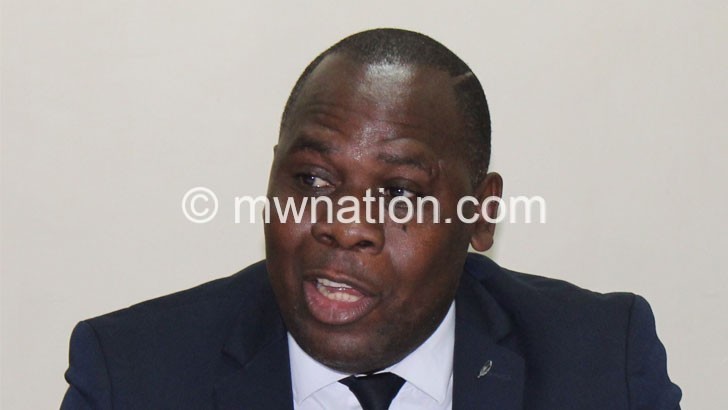Mixed reactions to lockdown
Political parties and human rights activists have faulted government’s decision to implement a 21-day lockdown as a measure to contain the coronavirus (Covid-19) pandemic, saying the move is not well thought of.
But while welcoming the move, Malawi Congress of Trade Unions (MCTU) has asked government and private sector employers to cushion workers.
In separate interviews yesterday, leaders of UTM Party, Human Rights Defenders Coalition (HRDC) and Citizens for Transformation (CFT) said government needed to consult widely to find solutions to the problem and assess the potential impact of the lockdown.

Their reactions follow the announcement of the lockdown from midnight April 18 to May 9 2020 midnight with a possibility of an extension.
In a brief statement, UTM president Saulos Chilima, who is also the country’s estranged Vice-President, said the lockdown will affect the poor badly; hence, appealed to President Peter Mutharika to avoid “copying and pasting” policies from other countries which cannot practically be used in Malawi because of the state of the economy.
He said: “Think about some people in Kauma, Mtandire, Chinsapo, Mbayani, Ntopwa, Bangwe, Chibavi, Katawa, Nchalo, Dwangwa, Uliwa and Matawale just to mention a few. They earn and buy food daily. Where will they get food in a lockdown?
“Don’t just copy and paste what others have done. This is Malawi. When a woman walks around the cities with a basket of groundnuts only to get K1 000 to feed her family on daily basis, do you lock that person down?”
Malawi Congress Party (MCP) president Lazarus Chakwera, when contacted for comment, said he was in court but his party would issue a statement.
But he is on record as having forewarned Mutharika on lockdown when the cases of Covid-19 were first reported. He said government needed to consider some issues to cushion Malawians from the impact.
Chakwera said: “If God forbid the virus enters Malawi I know Mutharika will call for a lockdown, but while that is commended he must explain to Malawians four things on why he is doing so. There is need to justify the lockdown, explain how court orders will be complied with, he needs to tell Malawians how government will support citizenship with essential needs. Without these measures the lockdown could come as a threat to stability of this country.”
In his national address on Tuesday night, Mutharika asked Malawians to fully comply with the new measures, saying they are for the good of the country.
HRDC chairperson Gift Trapence said many Malawians are poor and live below the poverty line; hence, the lockdown will burden them most.
He said government needed to undertake a thorough research and involve Parliament before declaring a lockdown.
Trapence said it will not be surprising if some people challenge the lockdown in court because the available laws are not enough to call a lockdown.
CFT leader Timothy Mtambo said his movement is upset by the measure he described as unreasonable, autocratic and insensitive.
But MCTU has commended government for instituting the lockdown and associated measures to save lives and contain the virus.
In a statement signed by its secretary general Denis Kalekeni, the union observed that the lockdown puts the majority of workers and citizens between prevention from contracting the deadly Covid-19 on one hand and starvation and destitution, on the other.
In this regard, MCTU has asked government and employers to consider implementing measures to mitigate the impact of the lockdown on the livelihoods of certain categories of the citizens and workers.
The measures include provision of financial packages, cash transfers and free food to vulnerable workers and households that earn their living in the informal economy.
Reads the statement: “Government should increase the capacity to carry out tests for Covid 19 and should, in the similar vein, consider making testing compulsory especially in high density settlements areas so that detection is made early and measures for containment are instituted.
“Government and employers should ensure protection of jobs and provision of social security and any other relevant support to workers.”





